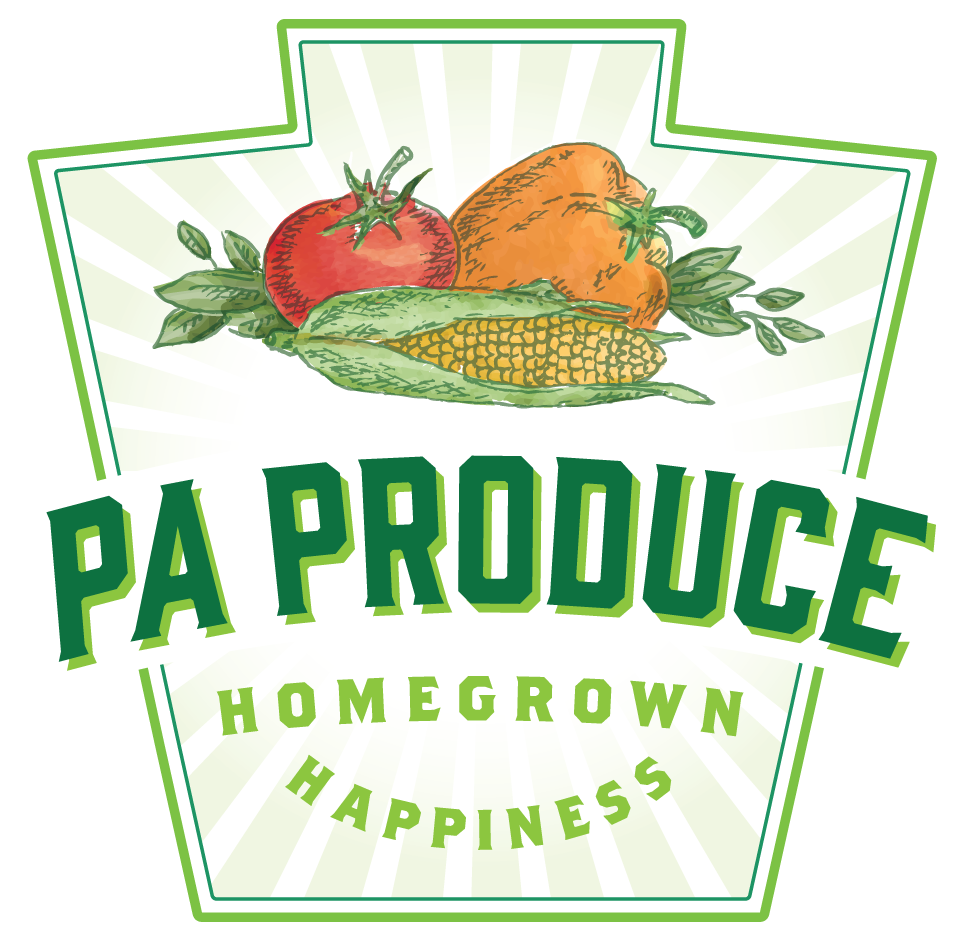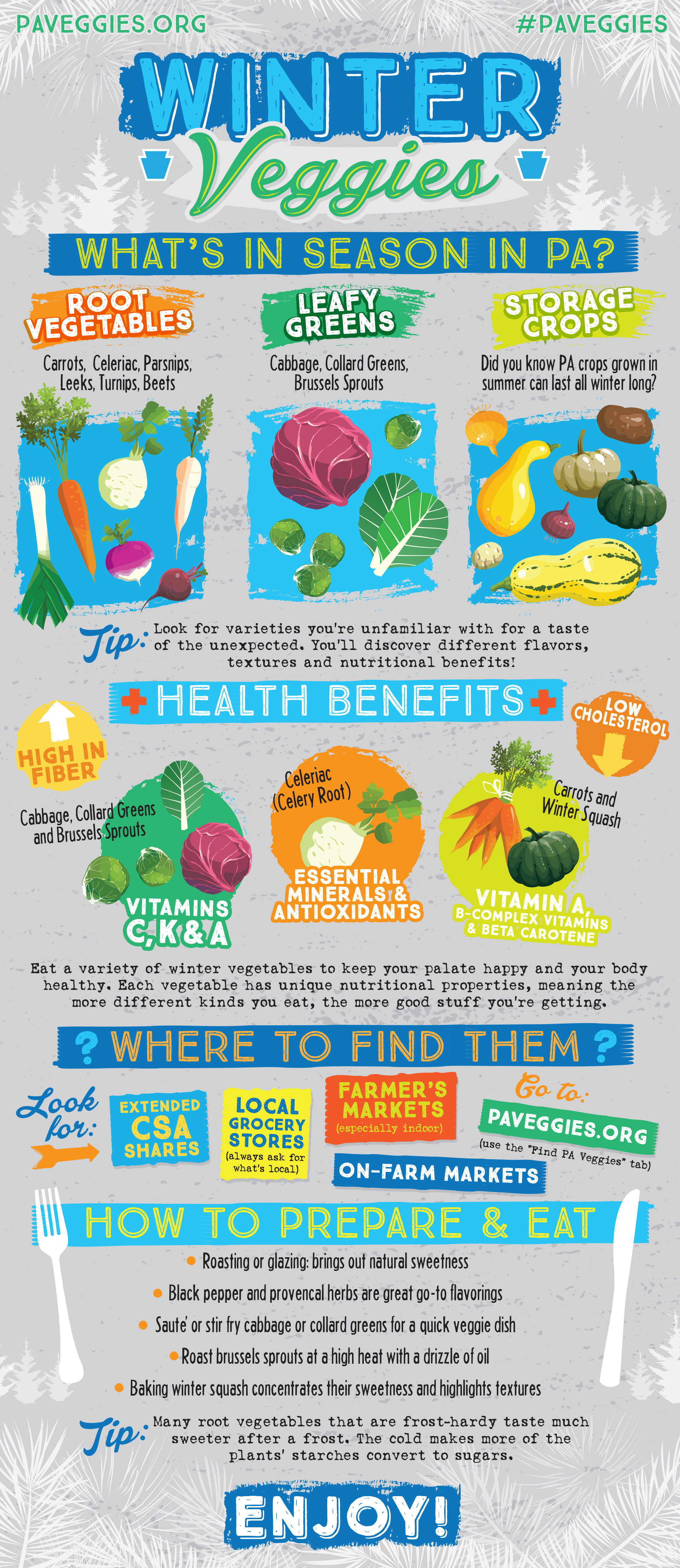What’s in Season in PA?
- Root Vegetables: Celeriac (Celery Root), Parsnips, Turnips, Carrots, Leeks
- Leafy Greens: Cabbage, Collard Greens, Brussels Sprouts
- Winter Squash: Butternut, Acorn, Kabocha, Delicata, Hubbard and more
- Tip: Look for varieties you’re unfamiliar with for a taste of the unexpected. You’ll discover different flavors, textures and nutritional benefits!
Health Benefits
- All of these winter vegetables are a good source of fiber and are low in fat and cholesterol.
- Cabbage, collard greens and brussels sprouts are all excellent sources of Vitamin C, Vitamin K and Vitamin A.
- Celeriac is a good source of essential minerals and antioxidants.
- Carrots and winter squash are rich in Vitamin A, and are good sources of B-complex vitamins and important phytonutrients like beta carotene.
- Eat a variety of winter vegetables to keep your palate happy and your body healthy. Each vegetable has unique nutritional properties, meaning the more different kinds you eat, the more good stuff you’re getting.
Where to Find Them
- During the winter, roadside stands and some farmer’s markets close up for the season, but you can still find many local growers and their produce. Look for farms that stay open for limited retail hours during the winter and offer extended community-supported agriculture (CSA) shares for the colder months. Farmer’s markets (especially indoor ones) also stay open past the growing season and sometimes year round. Go to PAveggies.org and use the “Find PA Veggies” tab to search for your closest source of locally grown goodness.
How to Prepare and Eat
- Root vegetables greatly benefit from cooking methods that highlight their natural sweetness, like roasting or glazing. Soups and stews are also the perfect home for hearty winter roots. Celeriac, in particular, makes a wonderful side when boiled and mashed, while leeks become amazingly rich when braised in white wine. Black pepper and provencal herbs are great go-to flavorings for these veggies.
- Tip: many root vegetables that are frost-hardy taste much sweeter after a frost. The cold makes more of the plant’s starches convert to sugars.
- Try sautéing or stir frying cabbage or collard greens for a quick vegetable dish. Those techniques softens thick leaves without making them mushy. Brussels sprouts are delicious roasted at high heat with a generous drizzle of your favorite oil. Their centers will steam tender while their delicate outer leaves develop an irresistible crispness. Cabbage and collard greens are perfect for soups and slaws, and their broad leaves can even double as a healthful substitute for tortillas. Vinegar and citrus are classic flavor enhancers for these greens, as is garlic.
- Winter squashes offer sweet and nutty flavors that are right at home in soups and stews. Or, try baking to concentrate the sweetness and highlight the textural difference between varieties. Remove the seeds and fill the cavity with your favorite stuffing for a wonderful vegetarian main course. Push their sweetness further with maple syrup and brown sugar, or create counterpoint with cinnamon or smoky chipotle pepper.
Share this Infographic On Your Site
Copy and paste the HTML code below:
Designed by Dish Works

